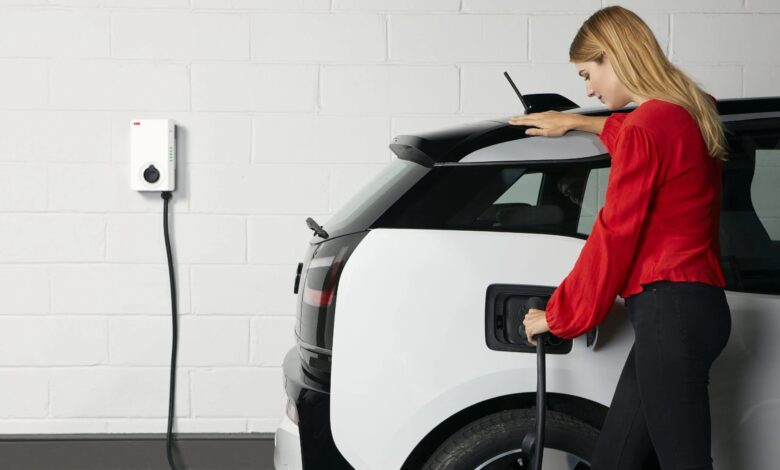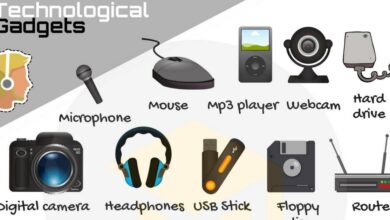Portable Charging Power: How to Stay Juiced Up On the Go

Electric vehicle (EV) technology has advanced rapidly in recent years, with more drivers switching to EVs than ever before. As EVs become more popular, the demand for convenient, easy charging options increases. This is where portable EV chargers come into play.
A portable EV charger is a compact, lightweight charging unit that EV owners can easily transport in their vehicle and use to charge their EV battery when away from home. These portable chargers provide an on-the-go charging solution when drivers are out and about or traveling and don’t have access to traditional EV charging stations.
In this guide, we’ll provide an in-depth look at portable EV chargers, the key features to consider when shopping, top brands, and recommendations to help you find the best portable EV charger for your needs and budget. Topics we’ll cover include:
- The different types of portable EV chargers available
- Important factors like charging power, speed, connectors, and portability
- Smart and safety features to look for
- Estimated cost ranges for portable chargers
- Reviews of the top brands and most popular models
- Tips for choosing the right portable EV charger for you
Whether you’re an existing EV driver or considering switching to electric, this guide will give you the information you need to understand your portable EV charging options. Let’s dive in!
Types of Portable Chargers
There are two main types of portable EV chargers:
AC/Level 2 Portable Chargers
AC portable chargers, also known as Level 2 chargers, plug into a 240V AC outlet and use an onboard inverter to convert the AC electricity into DC current that can charge an electric vehicle. Level 2 portable chargers typically provide charging speeds of 3 to 7 kW.
The main benefits of portable Level 2 EV chargers are:
- More widely compatible – Works with all EVs that support Level 2 charging. Many locations like hotels, campsites, etc have 240V outlets.
- Faster charging – Up to 7 times faster than a regular 120V outlet. Can add 10-25 miles of range per hour.
- Safer for long term charging – Level 2 is the preferred voltage for overnight or multi-hour charging sessions.
The downsides are:
- Need a 240V outlet – Requires access to a higher voltage 240V outlet, which are less common than regular 120V outlets. May need an adapter.
- Bulkier and heavier – The onboard inverter makes Level 2 portable chargers larger and heavier than DC fast chargers.
- More expensive – Cost more than DC fast chargers due to the onboard inverter.
DC Fast Portable Chargers
DC fast portable chargers use the J1772 standard to directly provide DC electricity to the EV’s battery. They are capable of charging at up to 7.5 kW, adding about 25 miles of range per hour.
The advantages of DC fast portable chargers are:
- Faster charging speeds – Provide the fastest charging from a portable unit.
- Compact size – Since there is no onboard inverter, they tend to be smaller and lighter. Easier to carry around.
- Lower cost – The simpler design reduces the cost compared to Level 2 portable chargers.
The limitations are:
- Only compatible with newer EVs – Works only with EVs that support DC fast charging via J1772, mostly newer models.
- Requires special outlet – Can only be used with specialized DC fast charging equipment and outlets. Access may be limited.
- Less safe for long sessions – Not recommended for overnight or multi-hour charging due to heat buildup. Better for quick top-offs.
So in summary, Level 2 portable chargers offer wider compatibility while DC fast chargers provide faster charging for newer EVs in locations with DC outlets available. Choosing between them depends on your specific EV model and charging needs.
Power and Charge Rates
Portable chargers come in a wide range of power levels, from small battery packs with 1,000-2,000 mAh to high capacity models over 25,000 mAh. The power level determines how quickly you can charge devices and how many charges the battery pack can provide before needing to be recharged itself.
Lower capacity portable chargers under 5,000 mAh are useful for topping off a phone or other small device, but may only provide 50-75% of a full charge for a phone. Midsize power banks from 10,000-15,000 mAh can often fully charge a phone 2-3 times before draining. High capacity models over 20,000 mAh can charge multiple devices multiple times.
The time it takes to charge your devices also depends on the output power rating of the portable charger, measured in amps. Chargers with 1A output will charge most phones at a standard speed, while 2A output or higher enables faster rapid charging. Newer phones and tablets can charge at up to 20W/3A output or more, if supported by the power bank.
To estimate charge times, divide the battery capacity of your device (in mAh) by the output power rating of the portable charger. For example, a 10,000 mAh power bank with 2A output would take approximately 5 hours to fully charge a 2,000 mAh phone battery. Higher capacity battery packs and lower output ratings result in longer charge times.
Selecting a portable charger with sufficient power and optimal charge time for your devices ensures you can quickly get your gear back up and running whenever you need. Advancements in fast charging capabilities continue to reduce downtime.
Charging Connectors
When shopping for a portable EV charger, one of the most important considerations is what type of charging connector it uses. There are a few main standards for EV charging connectors, and not all are compatible with every electric vehicle. Here’s an overview of the most common types:
J1772
The J1772 connector is the standard for Level 1 and Level 2 AC charging in North America. It consists of a large single connector that plugs into a port on the vehicle. All non-Tesla EVs sold in North America use J1772 for AC charging. J1772 chargers can deliver anywhere from 3-19.2kW of power.
CHAdeMO
CHAdeMO is a DC fast charging standard that originated in Japan but is now used worldwide. It uses a special large DC connector that allows for high voltage fast charging up to 62.5kW, enabling rapid charging cycles. CHAdeMO is commonly found at public DC fast charging stations. Not all EVs are CHAdeMO compatible, so check if your EV supports it.
CCS (Combined Charging System)
The CCS connector combines Level 2 AC charging and DC fast charging in a single port/connector. CCS has become the fast charging standard for European and American automakers. CCS delivers up to 350kW for ultra fast charging. Cars with CCS can use J1772 for slower Level 2 charging.
Tesla Connector
Tesla uses its own proprietary charging connector for Supercharging on Tesla vehicles. The Tesla connector is smaller than CHAdeMO and CCS and allows up to 250kW charging speeds. Tesla vehicles can use adapters to charge on J1772 and CHAdeMO stations.
Adapters
There are various charging adapter plugs that allow different charging connectors to be compatible. For example, a J1772 to CHAdeMO adapter allows a non-Tesla EV with J1772 to use a CHAdeMO fast charging station. Make sure any portable charger or adapter is properly rated and safe for the charging speed and voltage required.
The charging connector is a crucial factor when selecting a portable EV charger. Choosing the right connector ensures your charger will safely charge your EV at the optimal speed.
Portability
When choosing a portable EV charger, size and weight are key factors. Many portable chargers are compact and lightweight enough to easily fit inside your trunk or backseat. However, larger and more powerful units can be bulkier and heavier.
Look for portable chargers that have built-in handles and wheels if you’ll need to frequently move the charger around. Having handles and wheels makes transporting the charger much easier. Handles allow you to lift and carry the unit short distances. Wheels enable you to roll the charger like wheeled luggage.
Some key differences between portable charger models:
-
Smaller units designed for home use are very lightweight (10-15 lbs) and compact. Easy to store and move around your garage or home.
-
Mid-size portable chargers weigh 20-35 lbs. Still compact but heavier. May have handles.
-
Larger higher powered chargers weigh 40-75 lbs. Bulkier with telescoping handle and wheels for transport.
-
Industrial chargers designed for public spaces are very heavy, weighing 100+ lbs. Must have heavy duty wheels for moving.
When evaluating portability, consider your individual needs. If you’ll mostly use a portable charger at home, a smaller lightweight model could suffice. But if you need to frequently transport the charger, focus on ones with handles, wheels, and a more mobile design. The most portable chargers combine small size, light weight, and built-in handles/wheels.
Smart Features
Some portable EV chargers have smart features that allow you to monitor and control charging through a smartphone app or web portal. This can provide conveniences like:
-
WiFi Connectivity – Many portable chargers have built-in WiFi that allows you to connect to the charger through a smartphone app. This allows you to monitor the charging session, check the battery level, start/stop charging, and change settings remotely without being by the car. Some apps also let you track charging history and costs.
-
Apps – Companion apps offer monitoring and controls through an intuitive interface. You can check charger status, charging progress, view usage history, and change settings right from your phone. Some apps also have features like charge scheduling, notifications, and integrating with other smart home devices.
-
Scheduling & Monitoring Charging – Smart apps allow you to schedule exactly when you want charging to start and stop. This allows you to take advantage of lower electricity rates during off-peak hours. You can also monitor real-time power usage and costs to better understand charging behavior. Some chargers keep track of session details like charge rate, duration, and efficiency.
Having smart features allows more flexibility and insight into your EV charging. Before purchasing a portable charger, consider which smart capabilities are most useful for your needs. WiFi connectivity and app control provide the most robust options for monitoring and managing charging remotely.
Safety Features
When choosing a portable EV charger, it’s important to consider key safety features. This will ensure safe and reliable charging, especially when using your charger outdoors or while traveling.
Overcurrent and Overvoltage Protection
A critical safety feature is overcurrent and overvoltage protection. This protects both your EV and the charger from electrical surges or spikes that could damage your vehicle’s battery or the charger itself. Quality portable chargers will have built-in circuitry that monitors the current and voltage, shutting off the charger if either exceeds a safe threshold. This prevents fire risks or damage to your EV.
Weatherproofing
Since you may use a portable charger outdoors or while traveling, weatherproofing is essential. Look for chargers with an IP rating of IP65 or higher, indicating it is dust tight and resistant to powerful water jets. Rubber flaps covering ports, sealed housing and cables, and waterproof internal components allow safe charging even in the rain, snow, or other wet conditions.
Cable Management
Thoughtful cable management features also improve safety. A portable charger should allow neat, secure winding and storage of the cable to prevent tripping hazards. Features like cable hooks, Velcro ties, and compartments to store the bundled cable make a cleaner, safer charging experience. Indicator lights to show live power also help avoid unplugging a charger that is still transmitting current through the cable.
Choosing a portable EV charger with robust overcurrent/overvoltage protection, weather seals, and cable management ensures safe, reliable charging regardless of the conditions. These key safety features provide peace of mind wherever you take your portable charger.
Cost
The cost of a portable EV charger depends on several factors:
-
Purchase Price: Portable EV chargers range widely in upfront cost. More basic models designed for occasional emergency charging can be purchased for $100-$300. Mid-range portable chargers with faster charging speeds and more features typically cost $300-$800. High-end portable chargers with maximum charging power, long cables, and smart capabilities can cost $800-$1,500+.
-
Installation Cost: Most portable EV chargers can be used as plug-and-play devices that require no professional installation. However, hard-wired stationary versions of portable chargers may require hiring an electrician for installation, adding $100-$500+ to the total cost.
-
Operating Costs: With portable chargers, the main operating cost is the electricity required to charge your EV battery. Charging an EV with a typical portable charger uses 6-25 miles of range per hour of charging. At average residential electricity rates of $0.14/kWh, expect to pay $0.50-$2.00 to add ~25 miles of charge. Charging speed and battery size impact per-mile charging costs. Faster charging uses more electricity.
Additional factors impacting cost include charge cable length, which allows further positioning from the outlet (25 ft cables cost more than 20 ft). Smart chargers with wifi connectivity also command higher prices. Overall, portable EV chargers provide flexibility and charging on the go at a relatively low cost compared to installing a dedicated home charging station.
$99 to $680
Top Brands for Portable EV Chargers
When it comes to portable EV chargers, there are a few major brands that stand out. Here’s an overview of some of the top options:
Anker
Anker is one of the most popular brands for portable power banks and chargers. Some of their top portable EV chargers include:
-
Anker 735 Charger (NEC 2014) – Supports up to 40 amp charging. Durable and compact design. Around $400.
-
Anker 521 Charger – More budget-friendly model around $200. 25 amp charging. Sturdy build quality.
Pros: Affordable prices, reliable performance, good ratings and reviews.
Cons: Lower maximum amperage on cheaper models. Limited to level 2 charging speeds.
ChargePoint
ChargePoint is one of the leaders in EV charging networks. Their portable options include:
-
ChargePoint Home Flex – Modular design can charge up to 50 amps. Wifi connectivity. Around $680.
-
ChargePoint Boost Plus – Portable 32 amp charging. Great for travel. Around $400.
Pros: Strong reputation and app connectivity. Higher charging speeds than budget models.
Cons: More expensive than competitors. Large and heavy for a portable model.
Jackery
Jackery makes affordable lithium portable power stations. Good portable EV charger options include:
-
Jackery Explorer 1500 – 30 amp charging. Decent price around $1500. Solid ratings.
-
Jackery Explorer 1000 – 24 amp charging. Excellent value at around $1000.
Pros: Reasonably priced. Good quality and performance for the price. Lightweight.
Cons: Lower maximum charge amperage than pricier models. Basic functionality.
There are plenty of excellent portable EV charger brands on the market with options at various price points. Consider your charging speed needs, budget, and convenience factors to choose the best model for you.
Conclusion
Portable EV chargers provide a convenient way to charge your electric vehicle on the go. As we’ve discussed, there are several types of portable chargers to choose from, with varying power outputs, connectors, and features. When selecting a portable charger, it’s important to consider your specific charging needs and compatibility with your EV model.
The most powerful portable chargers can add up to 20-25 miles of range per hour of charging, while lower powered budget models may only add 10-15 miles. Faster charging times come with a tradeoff of larger size and weight. Compact, lightweight power banks offer slower charging but greater portability. Most portable chargers use standard J1772 connectors, but Tesla models require an adapter.
Smart portable chargers provide useful features like charge scheduling, temperature monitoring, and charge tracking through a smartphone app. These “smart” functions improve safety and charging efficiency, but increase the cost. Basic portable chargers without apps or advanced features provide an affordable charging solution.
In summary, portable EV chargers are a great way to extend your electric driving range and flexibility. Consider your budget, charging speed needs, EV model compatibilities, and portability preferences when selecting one. With the right portable charger, you’ll have peace of mind knowing you can charge conveniently on the go. Whichever model you choose, a portable charger enables you to get the most range and use out of your electric vehicle.






